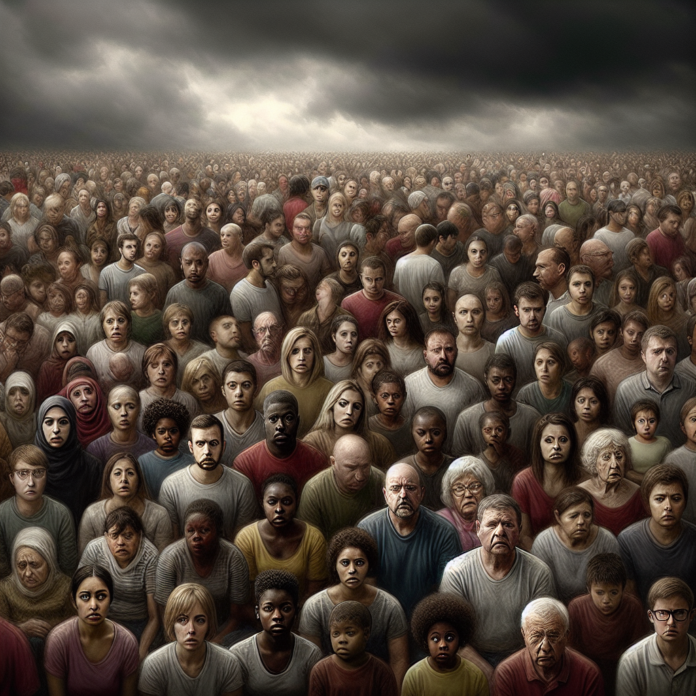The Human Cost of Pro-Life Extremism: A Silent Suffering
In the vast narrative of America’s socio-political landscape, no issue strikes a more visceral chord than the conflict between pro-life and pro-choice movements. As we delve into the rhetoric championed by pro-life extremism, a troubling picture emerges — one characterized by severe human suffering, infringement on personal autonomy, and a regressive step back from progressive values that uphold individual rights.
Historically, the tug-of-war between traditionalist and progressive ideologies has existed alongside significant cultural shifts. The anti-abortion movement, which gained traction post-Roe v. Wade in 1973, has often been framed as a bastion of moral conservatism, espousing values rooted in religious dogma. However, these values come at a cost that is profoundly human.
A stark example lies in El Salvador, where draconian anti-abortion laws have had devastating impacts. Since the imposition of a total ban on all forms of abortion in 1998, women have faced not only the menace of unwanted pregnancies but also the risk of criminal prosecution for miscarriages and stillbirths. The case of Evelyn Hernández, sentenced to 30 years in prison after a stillbirth, epitomizes the cruel ramifications of extremist policies.
In the United States, the sway of Catholic conservatism is particularly notable. Institutions like the Catholic Church have been ardent proponents of anti-abortion legislation, wielding considerable influence over public policy. Historically, this influence can be traced back to the mid-20th century when organizations such as the National Right to Life Committee, established in 1968, began to forge alliances with conservative politicians, embedding their ethos into the legislative framework.
The human stories behind these policies are often obscured by political noise. Consider the case of Savita Halappanavar in Ireland. In 2012, Halappanavar, 31, died from sepsis after being denied an abortion during a protracted miscarriage. Her passing, a result of extreme adherence to anti-abortion laws, ignited international outrage and was a tragic reminder of the lethal consequences of such legislation. Although Ireland has since repealed its constitutional restrictions on abortion, the echoes of that era remain a cautionary tale of the human cost of ideologically driven obstinance.
In recent headlines, states like Texas and Georgia have tightened restrictions on abortion, with laws such as the Texas Heartbeat Act effectively banning abortions after six weeks of pregnancy. These laws disproportionately affect marginalized communities, including low-income women and women of color. Without access to safe and legal abortion services, the repercussions ripple through society, perpetuating cycles of poverty and undermining public health.
The Texas law also embodies the phenomenon of legislative vigilantism by empowering private citizens to sue anyone involved in facilitating an abortion. This novel approach has sparked widespread concern about the encroachment on personal freedoms and privacy, fundamental tenets of progressive values.
The ramifications extend beyond immediate healthcare concerns. The ability to control one’s reproductive choices is intrinsically linked to broader issues of gender equality. Women’s participation in education and the workforce is inextricably tied to their access to reproductive healthcare. When extremist pro-life policies curtail this access, they are not just restricting medical procedures; they are systematically disempowering half of the population.
One must also consider the psychological toll. The stigma and trauma associated with forced pregnancies can have long-lasting impacts on mental health. Studies have shown that women denied abortions experience higher rates of anxiety, depression, and feelings of entrapment compared to those who have been able to make reproductive choices without coercion.
Progressive movements have long championed the cause of bodily autonomy, recognizing it as a cornerstone of individual liberty. Historical figures like Margaret Sanger, who advocated for women’s reproductive rights in the early 20th century, laid the groundwork for the progress achieved over the decades. However, the resurgence of pro-life extremism threatens to undo these advancements, creating a socio-political environment that prioritizes ideological purity over human well-being.
It is essential to critically evaluate the motives behind pro-life extremism. Often cloaked in the language of morality and protection, these policies frequently mask deeper agendas rooted in controlling women’s bodies and reinforcing patriarchal norms. Cases like the attacks on Planned Parenthood illustrate the lengths to which extremists will go to disrupt access to reproductive services, often resorting to violence and intimidation.
The path forward lies in reaffirming our commitment to human rights and progressive values that prioritize individual dignity and freedom. This requires a multifaceted approach: securing legal protections for reproductive rights, enhancing public education on reproductive health, and fostering a cultural shift that de-stigmatizes abortion.
In summation, the human cost of pro-life extremism is not just an abstract concept; it is a lived reality for countless individuals. These policies not only endanger lives but also undermine the fundamental principles of autonomy and equality. As history has shown, the march of progress may be fraught with challenges, but it is imperative to continue advocating for a future where every individual has the right to make decisions about their own body free from coercion and fear. By embracing progressive values, we can strive towards a society that genuinely values the sanctity of human life in all its complexities.
